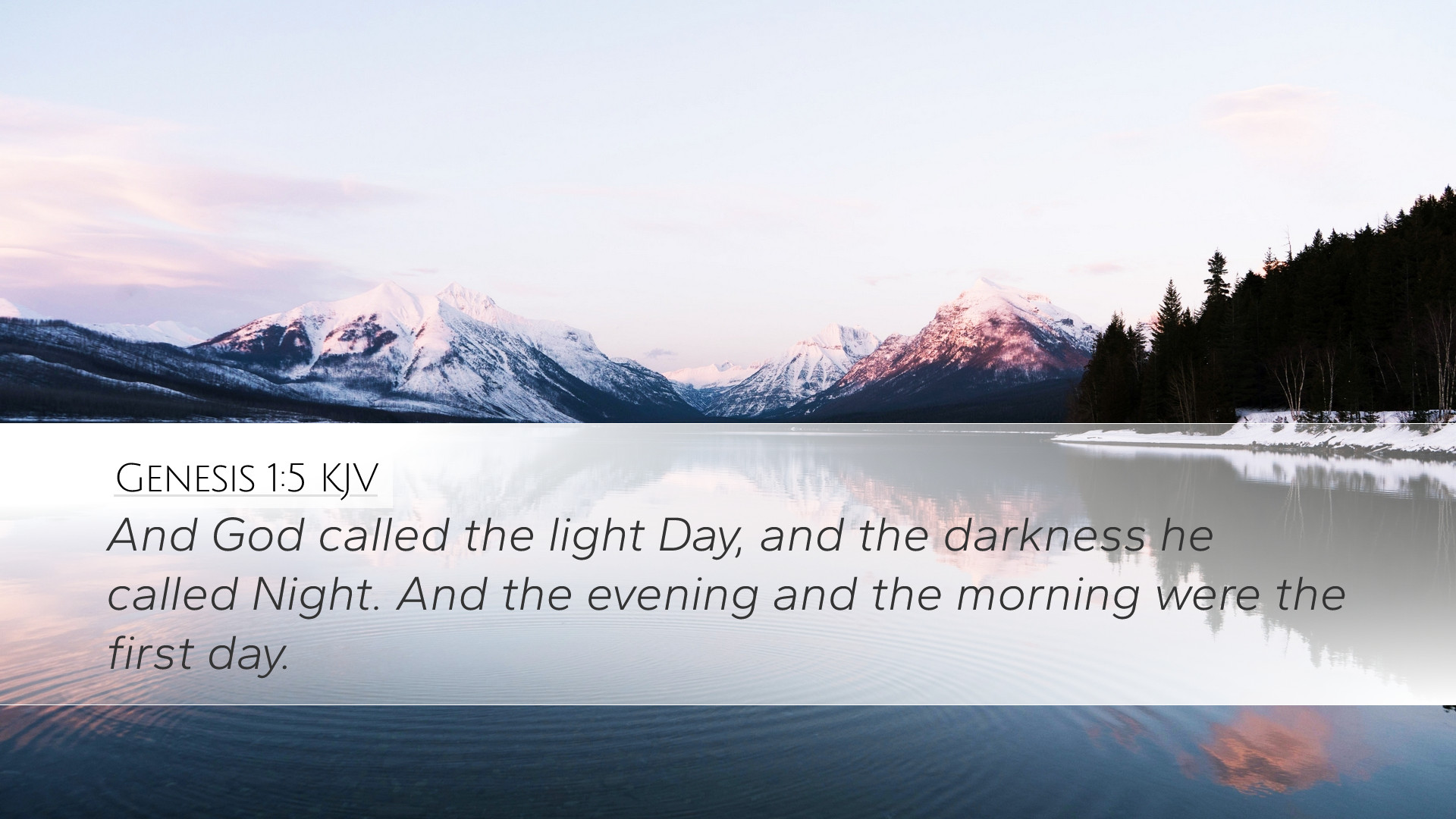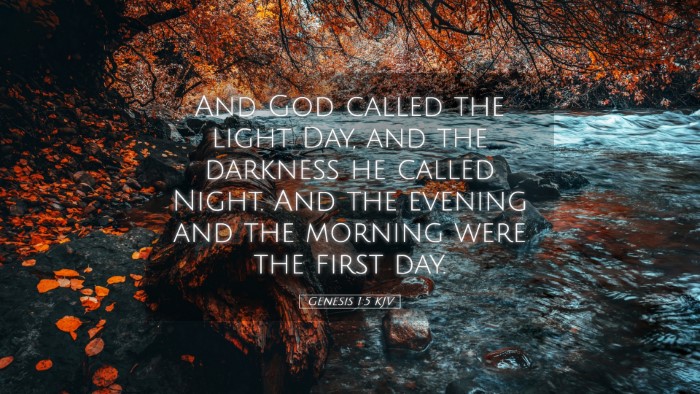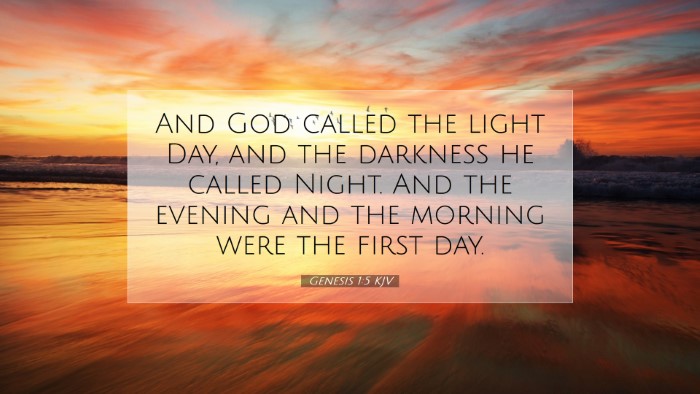Commentary on Genesis 1:5
Verse: “And God called the light Day, and the darkness he called Night. And the evening and the morning were the first day.”
Introduction
Genesis 1:5 marks a significant turn in the creation narrative, delineating the respective realms of light and darkness and establishing the foundation of time through the concept of day and night. This commentary draws from esteemed public domain sources to provide a multi-faceted exploration of this verse.
The Creation of Light
The phrase "God called the light Day" speaks to the sovereign authority of God as Creator. According to Matthew Henry, the act of naming signifies ownership and control; God’s declaration of light as "Day" signifies its purpose and function within His creation. Light, which is essential for life, is symbolically representative of knowledge, purity, and goodness.
Adam Clarke emphasizes that the Hebrew word for "day" (י֖וֹם, yom) can encompass various meanings, ranging from a 24-hour period to an undefined duration. Therefore, the concept of "day" in this context also conveys God’s intention for the creation to have order and structure.
The Nature of Darkness
Conversely, darkness, referred to as "Night," does not carry the same positive connotation as light. Albert Barnes describes night as the absence of light, which is a recurring biblical metaphor for chaos and evil. In establishing night, God delineates it clearly from day, emphasizing a created order in which both light and darkness serve unique purposes.
Evening and Morning: A Divine Rhythm
The structure of the verse culminates in the phrase "the evening and the morning were the first day." This expression introduces a rhythm that will recur throughout the creation account, highlighting a pattern of completion and new beginnings. Henry notes that this rhythm encapsulates the biblical understanding of time, where each day is a cycle beginning with evening, symbolizing the completion of the day’s creative work and leading into the potential of the next day.
Moreover, Clarke adds that evening precedes morning, symbolizing how, often in life, darkness must be faced before new light can emerge—a profound theological truth that offers comfort in moments of difficulty.
- Evening as Completion: It signifies the end of a period of work, embodying a notion of rest.
- Morning as Renewal: Represents new beginnings and opportunities, as well as the hope imbued in each day.
Theological Implications
Beyond the literal account of creation, this verse carries extensive theological weight. The duality of light and darkness echoes throughout Scripture, representing the ongoing battle between good and evil (as explored in John 1:5). Barnes elucidates that the story of creation serves not only as an origin narrative but also as a construct for understanding the nature of God and His relationship with the world.
The act of naming by God exemplifies divine authority and intentionality in creation. As such, this verse also establishes a continuing theme throughout the Bible: the significance of God's Word in the unfolding of history and human experience. The spoken word of God initiates order from chaos, a theme central to Christian doctrine.
Practical Applications
For pastors, students, and theologians, this verse invites reflection on God’s role as the sovereign creator and the implications for Christian discipleship. As Matthew Henry articulates, understanding the nature of light and darkness informs our moral and ethical decisions, encouraging believers to strive toward the light of truth, holiness, and righteousness.
Additionally, Barnes draws attention to the implications of this verse for personal growth and spiritual formation. The cyclical nature of evening and morning serves as a reminder that spiritual renewal often comes after periods of darkness or struggle, encouraging believers that God structures time to lead them from one phase of life to the next.
Conclusion
Genesis 1:5 is not merely the completion of a creative cycle; it is a vital verse with profound implications for the understanding of God's character, the nature of time, and the ongoing narrative of creation and redemption. The insights from Matthew Henry, Albert Barnes, and Adam Clarke illuminate the complexity of this verse and invite deeper contemplation for all who engage with the biblical text.
As such, Genesis 1:5 serves as an essential touchstone for discussions on theology, philosophy, and practical Christian living, encouraging all to recognize the divine rhythm of life and the call to walk in the light.


